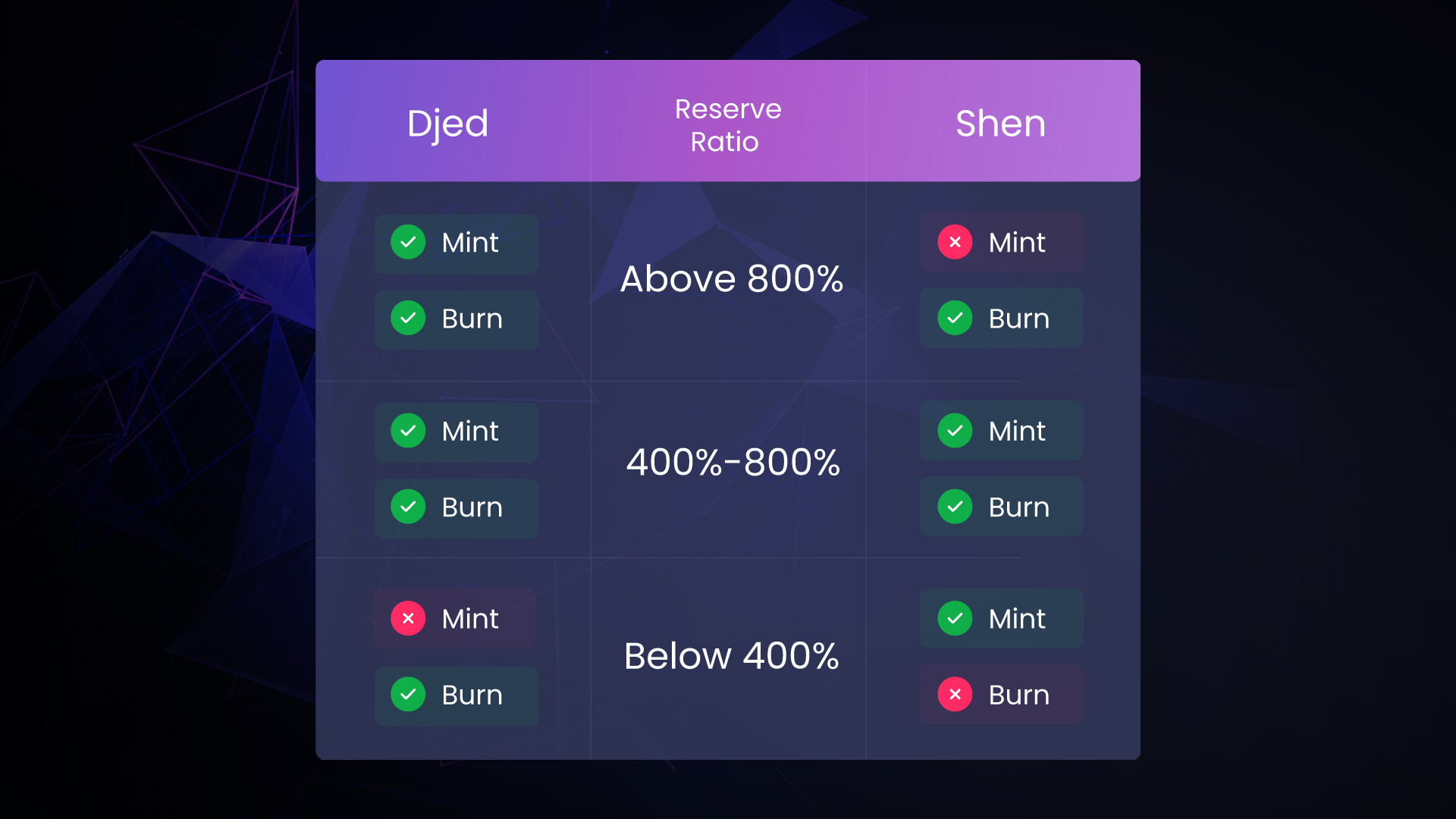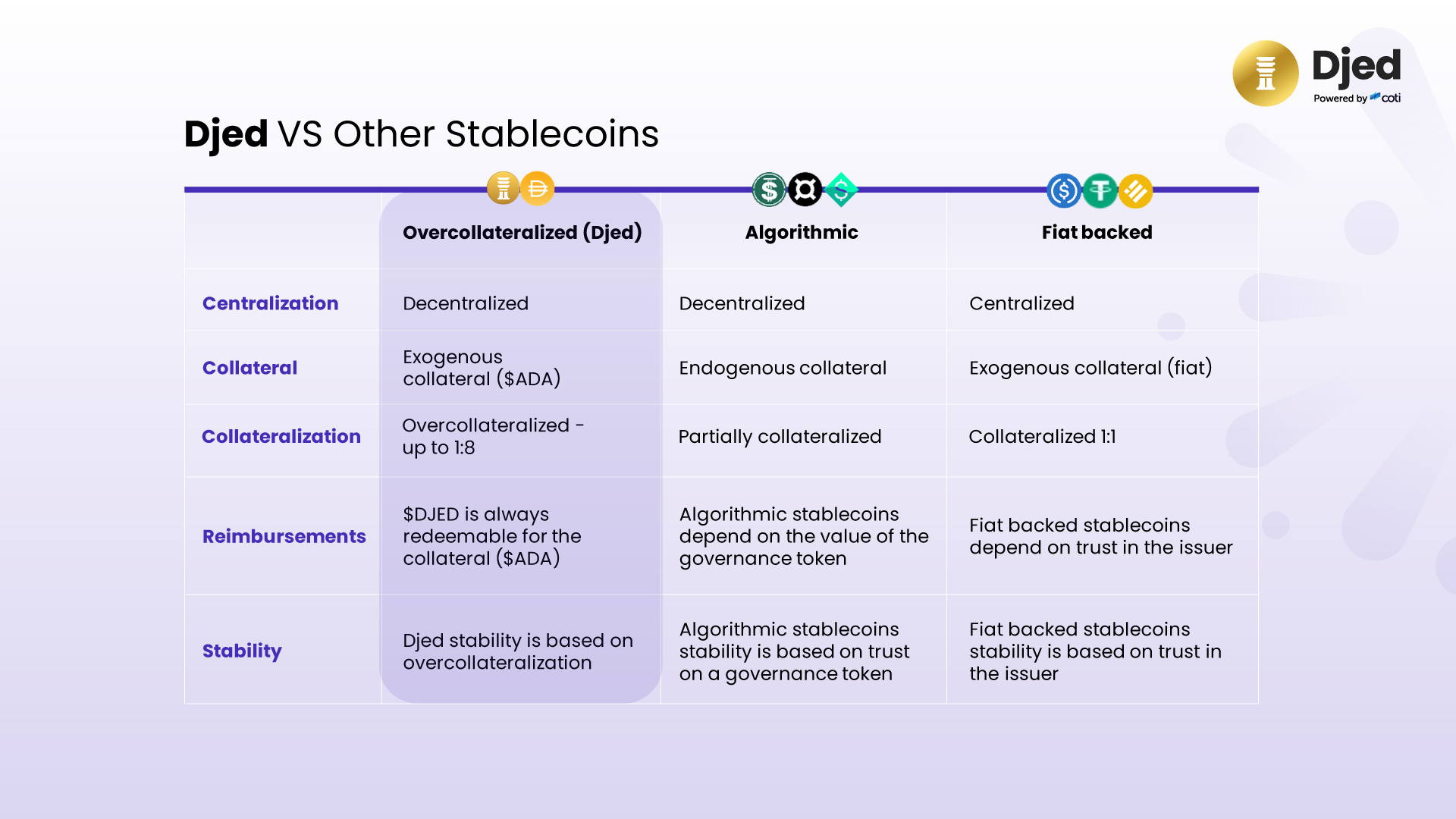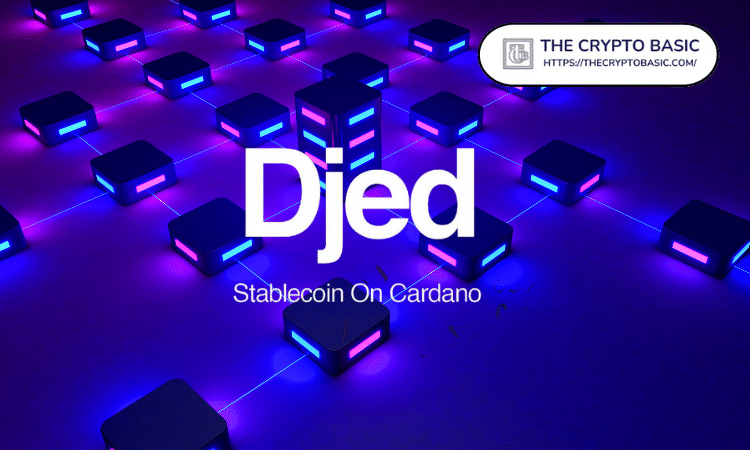DJED
About DJED:

DJED
DJED is an overcollateralized stablecoin that uses exogenous collateral (ADA) to ensure stability. The protocol is backed by 400-800% overcollateralization and is guaranteed by its reserve coin, SHEN. The stability of DJED is based on overcollateralization, which eliminates the need for trust in a governance token as seen in algorithmic stablecoins. The platform is also fully decentralized and community-driven, allowing for open-source development and community involvement in minting and burning DJED and SHEN.

Collateral - Djed uses exogenous collateral (ADA). A typical algorithmic stablecoin uses endogenous collateral, such as: FRAX,Synthetix and UST.
Collateralization - DJED is overcollateralized by 400% — 800%. Algorithmic stablecoins are usually partially collateralized or undercollateralized.
Centralization vs Decentralization - DJED is fully decentralized, and doesn’t require centralized servers, nor does it involve off-chain partners like banks for transactions. This eliminates censorship risks.
Stability - The stability of DJED is based on overcollateralization. Algorithmic stablecoins usually require trust in a governance token.
Capital Efficiency - Fiat backed stablecoins’ scale factor is 1. This means that if you deposit $1 as collateral, you receive $1 of stablecoin. Algorithmic stablecoins have a higher scale factor, they have collateral backing on top of redeemable reserves, however, they are much riskier since they require large scale trust in the stability model, which also depends on the governance token. Normally, overcollateralized stablecoins are less capital efficient, but DJED is different, it fixes that flaw with the addition of the SHEN model, which takes care of the overcollateralization, making DJED capital efficient.
Reimbursement - DJED is always redeemable for its collateral (ADA). $1 worth of ADA, always equals $1 worth of DJED. Algorithmic stablecoins depend on the value of the governance token.



